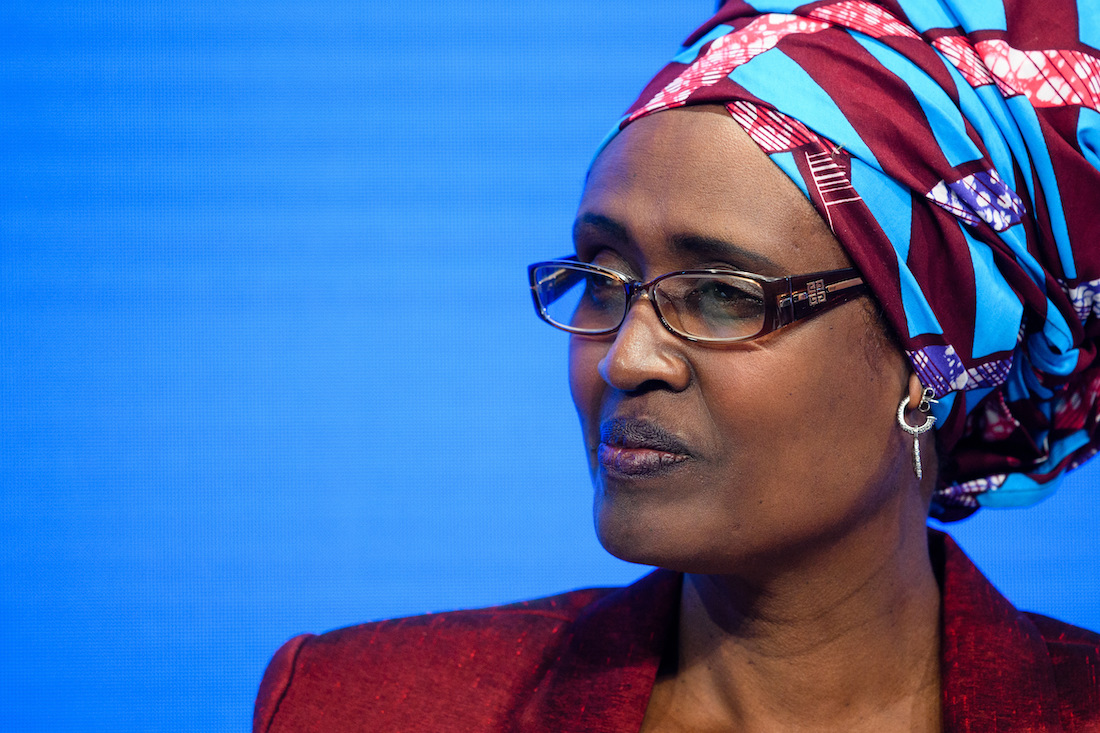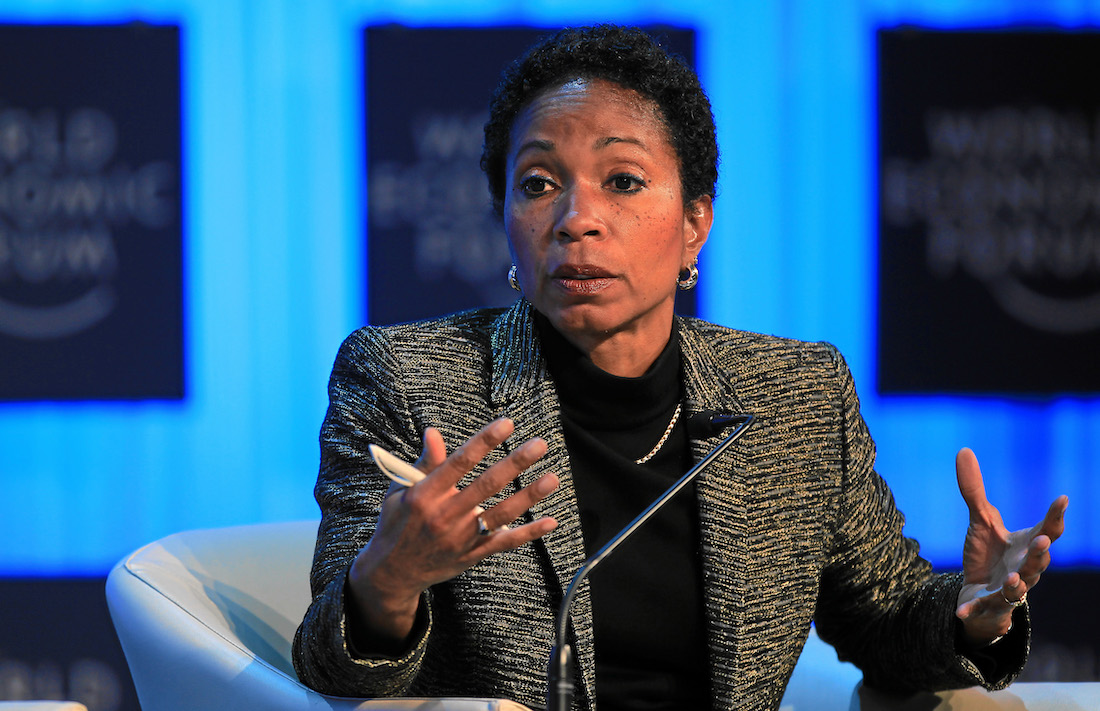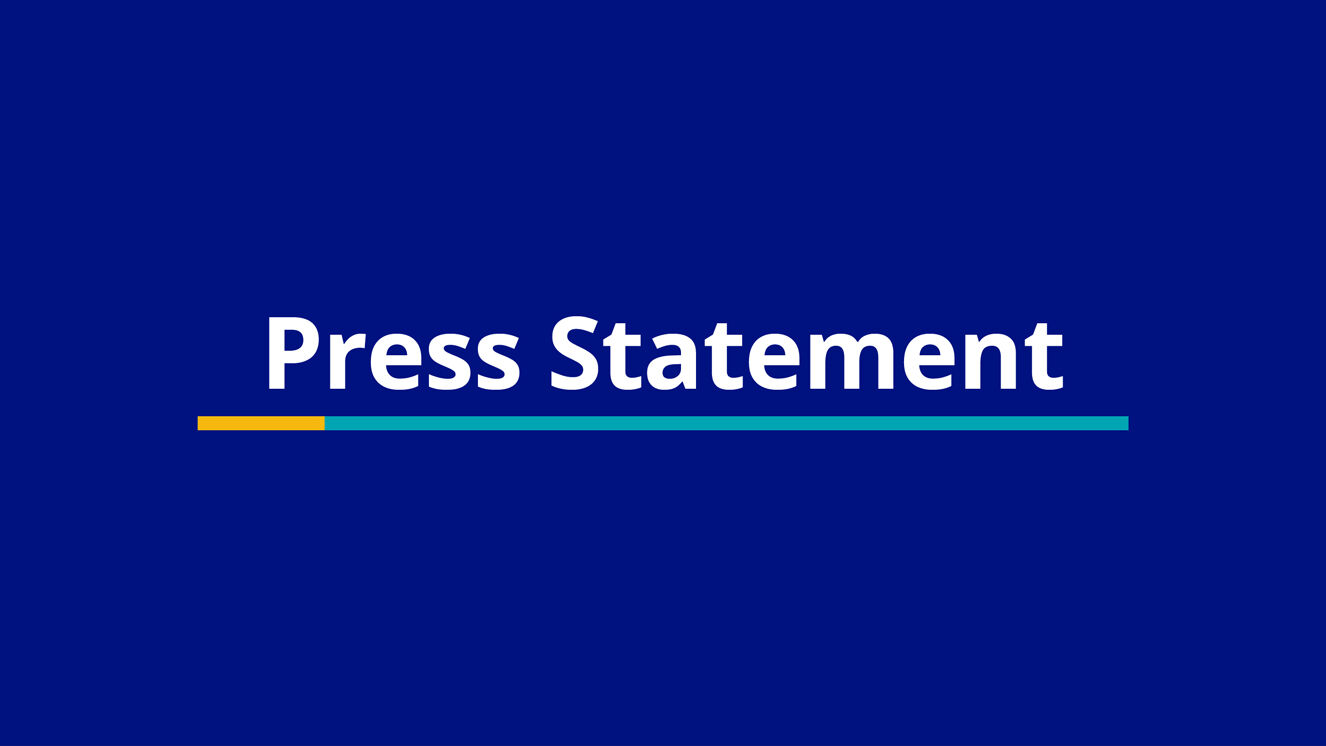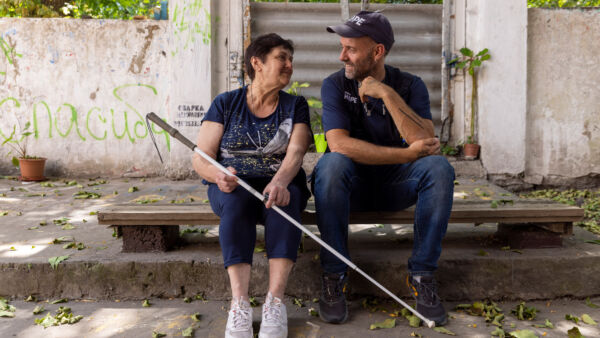5 Black Health Leaders Who Inspire Our Mission
In recognition of Black History Month, here are five Black health leaders who have spent their careers improving access to health care around the world.

February is Black History Month, a time to reflect on and honor the contributions and struggles of Black Americans who have helped shape the United States. This Black History Month, we are highlighting five Black health leaders who inspire our mission at Project HOPE to place power in the hands of local health care workers to save lives across the globe.
1. Ambassador Dr. John N. Nkengasong

Dr. John N. Nkengasong, known for his leadership in public health, currently serves as the U.S. Global Aids Coordinator and Special Representative for Health Diplomacy, leading the U.S. President’s Emergency Plan for AIDS Relief (PEPFAR). Dr. Nkengasong was the first Director of the Africa Centers for Disease Control and Prevention (Africa CDC). In that role, he developed policy frameworks that helped strengthen African public health systems, led the COVID-19 response in Africa, and was appointed as one of the special envoys to the Director General of the World Health Organization. During his tenure with the Africa CDC, Project HOPE had the opportunity to partner with him and his team on a comprehensive training program that focused on case management, COVID-19 vaccines, and mental health.
>> Read more from CEO Rabih Torbay: Charting A Sustainable Future for PEPFAR 4.0
2. Loyce Pace

Loyce Pace is the Assistant Secretary for Global Affairs at the US Department of Health and Human Services (HSS), where she advances the United States’ international health agenda and oversees HHS’ engagement with foreign governments and international institutions. Prior to joining HHS, she was President and CEO of the Global Health Council, the leading member organization devoted to advancing global health priorities, where she advocated for increased federal investments in global health. Before that, she worked with community-based organizations across Africa and Asia with a focus on person-centered access to health. Watch her one-on-one conversation with Health Affairs Editor-in-Chief Alan Weil from October 2021 here.
3. Dr. David R. Williams
Dr. David R. Williams is the Florence Sprague Norman and Laura Smart Norman Professor of Public Health and chair of the Department of Social and Behavioral Sciences at the Harvard T.H. Chan School of Public Health. He is also a Professor of African and African American Studies and Sociology at Harvard University. Dr. Williams is a leading scholar examining the influences of social factors on health. In particular, his research has helped us understand how race, socioeconomic status, stress, racism, and other social factors affect health. He also developed the Everyday Discrimination Scale, one of the most widely used measures of how discrimination affects well-being, and has conducted influential research in the U.S., Africa, and other countries. His latest article in Health Affairs explores the intellectual roots of current knowledge on racism and health.
4. Winnie Byanyima

Winnie Byanyima is the Executive Director of UNAIDS (the Joint United Nations Programme on HIV/AIDS) and an Under-Secretary-General of the United Nations, where she leads the United Nations’ efforts to end the AIDS epidemic by 2030. To do so, she aims to remove barriers preventing key groups, such as women and girls, from getting HIV services and address women’s rights and gender equality, among other priorities. She believes that health care is a human right and is a champion of gender equality. Prior to joining UNAIDS, she was the executive director of Oxfam International, and served for 11 years in the Uganda parliament where she led Uganda’s first parliamentary women’s caucus.
5. Dr. Helene D. Gayle

Dr. Helene D. Gayle is the 11th president of Spelman College. She is the former President and CEO of The Chicago Community Trust, one of the nation’s oldest and largest community foundations. Under her leadership, the Trust adopted a new strategic focus on closing the racial and ethnic wealth gap in the Chicago region. Prior to that role, she was President and CEO of the international humanitarian organization CARE. She is recognized for her expertise in global development and humanitarian and health issues. Her career began with the Centers for Disease Control where she primarily focused on HIV/AIDS; she also led HIV/AIDS programs and other global issues during her tenure at the Bill & Melinda Gates Foundation.
We are proud to follow in the footsteps of these influential leaders as we carry out our work at Project HOPE.
Jessica Bylander and Lesly Beatley are co-chairs of Project HOPE’s Diversity, Equity, and Inclusion Council.



